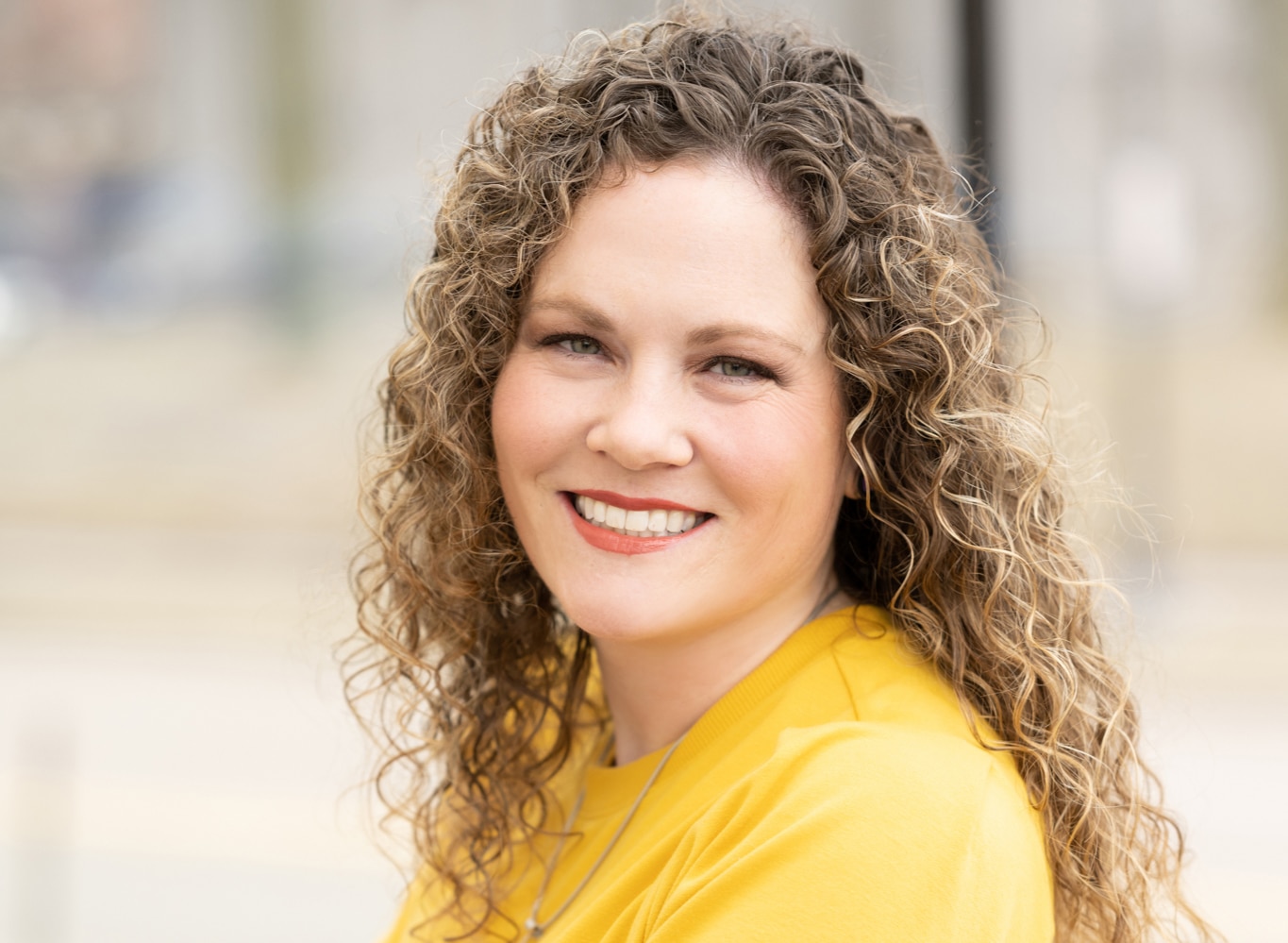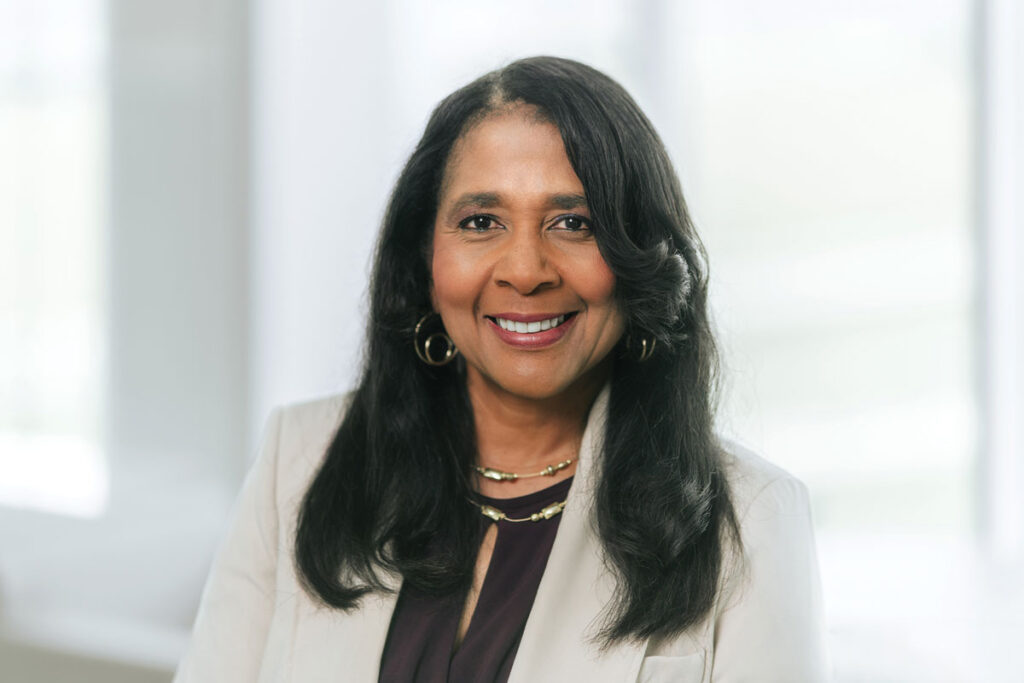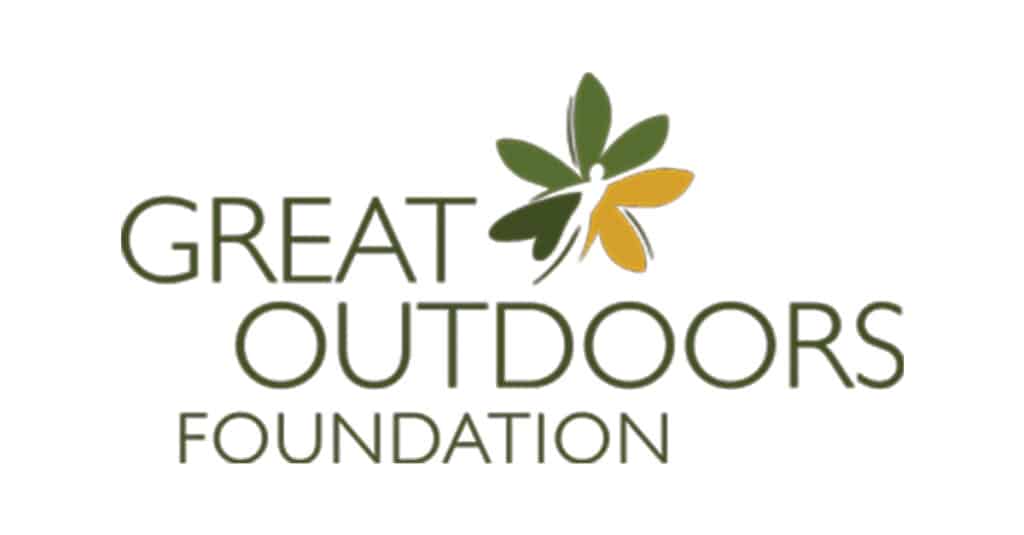A Closer Look: Jill Wilkins
Executive director, New Bohemian Innovation Collaborative (NewBoCo)

Business Record Staff Apr 5, 2024 | 6:00 am
11 min read time
2,564 wordsA Closer Look, All Latest News, Innovation and EntrepreneurshipJill Wilkins’ home office wall, decorated with framed posters from Broadway shows, is a reminder of the influence the arts have on her life. Her parents are both artists, which drew her to dance, music and theater growing up.
To Wilkins, the arts, at their core, are about creating unique moments and experiences for audiences, big or small. And in her career, she’s discovered new ways of expressing that tenet, including in her current role as executive director of the New Bohemian Innovation Collaborative in Cedar Rapids, better known as NewBoCo.
Working in and planning events was her first outlet. She got her start as a marketing assistant for Orchestra Iowa. A few years later, she took a job as director of events for the Cedar Rapids Downtown District, which later became the Cedar Rapids Metro Economic Alliance following a merger.
The role brought her a new set of experiences at a time when event positions were just starting to become common.
“I had a really neat opportunity to go back to those roots of creating that moment for somebody or that unique experience and doing it in a different way, but then also really having an opportunity to work with the business community in a way that I hadn’t before, to really start to pick up a better understanding of all of the different facets,” Wilkins said. “Then also community development and just getting an understanding of how that quality of life piece with events plays in partnerships with the business community and being able to have a much better understanding of what all is involved in the creation and work within a community.”
While coordinating events like the Cedar Rapids Downtown Farmers Market, she became familiar with the Iowa Startup Accelerator, the state’s first accelerator program that evolved into NewBoCo as the founders started to notice other gaps in entrepreneurial support at that time.
Wilkins first joined NewBoCo as events director in 2016 when it was preparing to host EntreFEST for the first time. She then applied her skills to the whole organization as chief operating officer starting in 2020.
She said her passion for creating unique experiences easily translated to the entrepreneurship space.
“It’s still similar in the way of making that thing happen. I love coming up with the idea,” she said. “They’ll say in the event space, ‘Come up with the idea and figure out how to make it happen,’ and that is so much entrepreneurship and innovation.”
Wilkins served as NewBoCo’s interim executive director starting in May 2023 and officially took over the role in December.
The Business Record recently caught up with Wilkins to learn more about NewBoCo’s evolution, its efforts to collaborate with more communities statewide and the effect of new commercial development on entrepreneurship.
This Q&A has been lightly edited for clarity and length.
How did the Iowa Startup Accelerator evolve into NewBoCo?
NewBoCo did start as the accelerator, really building that entrepreneurship community. [What] has been the interesting and, I think, neat thing about the organization is that over the years it has very much been a matter of identifying gaps in the entrepreneurial ecosystem and trying our best to fill them if no one else is. That really is how the organization started from entrepreneurship and moved to entrepreneurship, computer science, education and innovation, and we really think of innovation as that thread throughout. Entrepreneurship and innovation are really our two big pillars for the organization and that’s done through a variety of programming. It’s been really neat to be able to see just how we’re able to utilize all that programming within different communities in the state since every community is unique so how we can best be of help changes from each community that we work with.
You said NewBoCo’s mission is focused on filling gaps — what were some of the gaps the founders identified at the time?
I think Eric Engelmann is a great example of somebody who is an entrepreneur and was successful in building Geonetric, but then was doing a lot of research and seeing what other communities had. I think that a big piece of it was that we had some of these different facets but they weren’t brought together in a way that we had a unified community where founders could find each other and find that support system, which is a really big thing, being able to find others working in similar spaces or having similar challenges. I think part of it was just bringing people together and realizing that there are other entrepreneurs out there and also just understanding it sounds kind of silly at times. Access to capital was certainly a very big thing. The Iowa Startup Accelerator was the first accelerator in the state, so having the opportunity for businesses and startups to receive access to capital and then that direct support to quickly move their business forward was something that wasn’t readily available to the extent that it is now. That is a really cool thing when you think about it was just 10 years ago, and it was the first accelerator, and now we have multiple accelerator options, some with very defined focus areas.
When it comes to the education piece, as our organization was working with the entrepreneurs, we were just really understanding if there was that gap for tech talent and needing to hire folks, and that can be within our startup community but also with our larger corporations. They certainly had the same issue, and alongside this, we had individuals who were starting to run some kids’ programming, and we had some great individuals who were software developers who wanted to really give back and identified that currently what they were seeing from educational opportunities for their children wasn’t to the extent that it needed to be. There’s a variety of angles that came in that really showed that there was this need for educational support, so that’s where some of our direct student-facing programming has come in to boost more interest in students that this is a career path for them or something that is of interest. Also with the Code.org work teaching teachers to teach computer science in the classroom, that’s certainly aligned really well when the state made that a very important initiative.
What changes have you experienced transitioning into the executive director role?
The fact that I was in the interim role for a while made the official change not as drastic. But that being said, the official change did really help me feel more empowered to drive an idea or make a change because there is definitely that piece of you don’t want to go too far down a path or make a change if somebody else shortly thereafter might choose a different direction. That’s not going to be helpful for a staff or for anyone. There definitely was a period there in the interim that felt like I was still kind of in my same role and just very much making things run and just trying to maintain in a sense without doing too much movement. Being able to officially move into that position I think has given me the opportunity to say, “OK, let’s do this. Let’s do this path.” It’s been great that I get to work with a group of people who are, one, willing to challenge that if they have a question, but then, two, are also open-minded to trying things and not just say, well, that’s not how we’ve always done it. The ability to try some new things is exciting and then to get feedback from everybody like, let’s work together and figure this out. And maybe the way we were doing it was the right way, but let’s try this and see and maybe this opens up a couple of other possibilities that we haven’t thought of before. That has been neat to really be able to just go.
What are your thoughts on how NewBoCo can bring innovation into its operating model as it expands to new communities?
[Expanding] has been a really cool experience for us. I think it’s about figuring out how that model works and a way to be able to move a little faster. For the good or the bad, I think we’ve always moved pretty fast in some of our work. I think you could probably argue that sometimes that’s good and sometimes that’s probably bad and you should slow down a little bit. In this last year or so we have been able to provide some more in particular entrepreneurship work in a more statewide way. Our education has been more statewide, I would say, for a longer period of time, but even with that we’re looking at some of the other programming aside from the teacher workshop and training that could potentially be useful to other communities. It’s figuring out how to best jump-start that within a community because there are a lot of different things that need to be in place. It’s very important to have stakeholders on board, and also that it’s something that the community wants and that they invite us in. It’s about streamlining that process more to understand where those opportunities lie and the best way to ignite it early on to then maybe move a little bit faster than we have been, and that’s very much just the learning process, but it’s a great opportunity for us to take our own workshop and take a look at our customer and make sure we’re getting that feedback and then adjusting accordingly. It’s difficult to do sometimes, but it’s very much like, “Stop and take our own medicine.”
What is NewBoCo’s overall approach for helping new communities across the state?
Even from the very early days, the mission has always been accelerating world-changing ideas from Iowa, so even with the focus of the accelerator with Iowa-based businesses, it’s had that full state-of-Iowa focus. However, just because of geography, for a lot of that, it very much had been focused on Eastern Iowa. And before we started the community partner work and expanding more, Aaron Horn, in particular, had received more outreach from economic developers and other communities asking, what are you doing? What have you done in those locations? Might that be something that we could replicate here? A lot of the communities that we have talked to were just identifying how important entrepreneurship and innovation are within the fabric of a community — especially within some of the smaller rural communities that have had varying challenges over the years — and that entrepreneurship is an important piece and also an opportunity that they can leverage more, especially in the more virtual world. People may be living there that hadn’t before because they’re able to work for a company in a larger area, but they’re choosing to live in a smaller community. There’s an opportunity to leverage some talent there and to have an attraction to that community and then foster and build the unique businesses that make that community its own. That acknowledgment of how much entrepreneurship and innovation and technology, all are a piece of a community’s sustainability and growth, and again, having others reach out to us wanting to know more and to have open conversations about what could be possible, I think really is what opened that door. It very much won’t be successful if it’s not something that those within the community want to have happen and, ultimately, work to have happen because we can only be a partner and a support and try to help guide with lessons learned and to not reinvent the wheel. That being said, don’t reinvent the wheel but understand what is unique to that community. We’ve had staff members down in the Mount Pleasant and Fairfield area for a year now. That has been really cool to see the bringing of that community together and helping those working within different spaces know that there are others there too. We’ve had a conversation with Council Bluffs, and there’s certainly that entrepreneurship need, but there’s definitely a look at building the tech talent, and we’ve had similar conversations with folks in Sioux City. Starting to work more on the west side of the state is going to be really neat and, again, take some of the programs we currently have and figure out how we can maybe infuse them.
Do you think the past and current development of the Czech Village & New Bohemia District in Cedar Rapids has helped provide opportunities for entrepreneurship?
I do. Having been around for the 2008 flood and working for the downtown district then and knowing what that neighborhood was like and to see what it is like today — it’s kind of mind-boggling the amount of development that has happened in a relatively short amount of time in the grand scheme of things. It really is creating a very dynamic space that is exciting, and I think there has been some intentional work with creating some different opportunities too. There’s a building that we’ll be opening up that’s mixed-use, but the commercial space on the lower level is a little bit smaller, so it’s maybe going to open up an opportunity for somebody to have a brick-and-mortar storefront in a smaller space that they wouldn’t have otherwise because traditionally, it’s just too big. I have a friend who’s gone out and started her own venture for the first time, and that’s something that she was looking into because a traditional space would just be way too big for her. I’m really curious to see once that building opens what businesses move into that space that we probably would not have otherwise because it’s just providing a little different opportunity.
What are some of NewBoCo’s goals for the year?
This year we’re really starting to hone in on greater alignment within our programs. Certainly, everything has been created with that need of identifying that gap and helping provide a service in that area. I think one of the things that we are able to now leverage even more is that we have some of these programs that have a little bit more maturity to them now is really showing how they do interact with each other, how you do need all these different pieces for the greater ecosystem, so creating some neat threads between them to provide some other opportunities. Then certainly that newer work within other areas of the state is definitely going to be something that continues this year and evolves as we have a couple new communities that we work with. It’s going to be exciting to see the direction that winds as we work with them to identify those paths. We’ve just had our adult education and our K-12 education putting their heads together a lot more because again it’s about what is that nice cohesive path to make sure that we either as an organization, we as a state are filling the gaps that are needed in providing that path for someone who has that interest. It’s exciting to take all the things we do and think about how we might be able to tweak them a little bit, or pair this with this, that we never have before.









